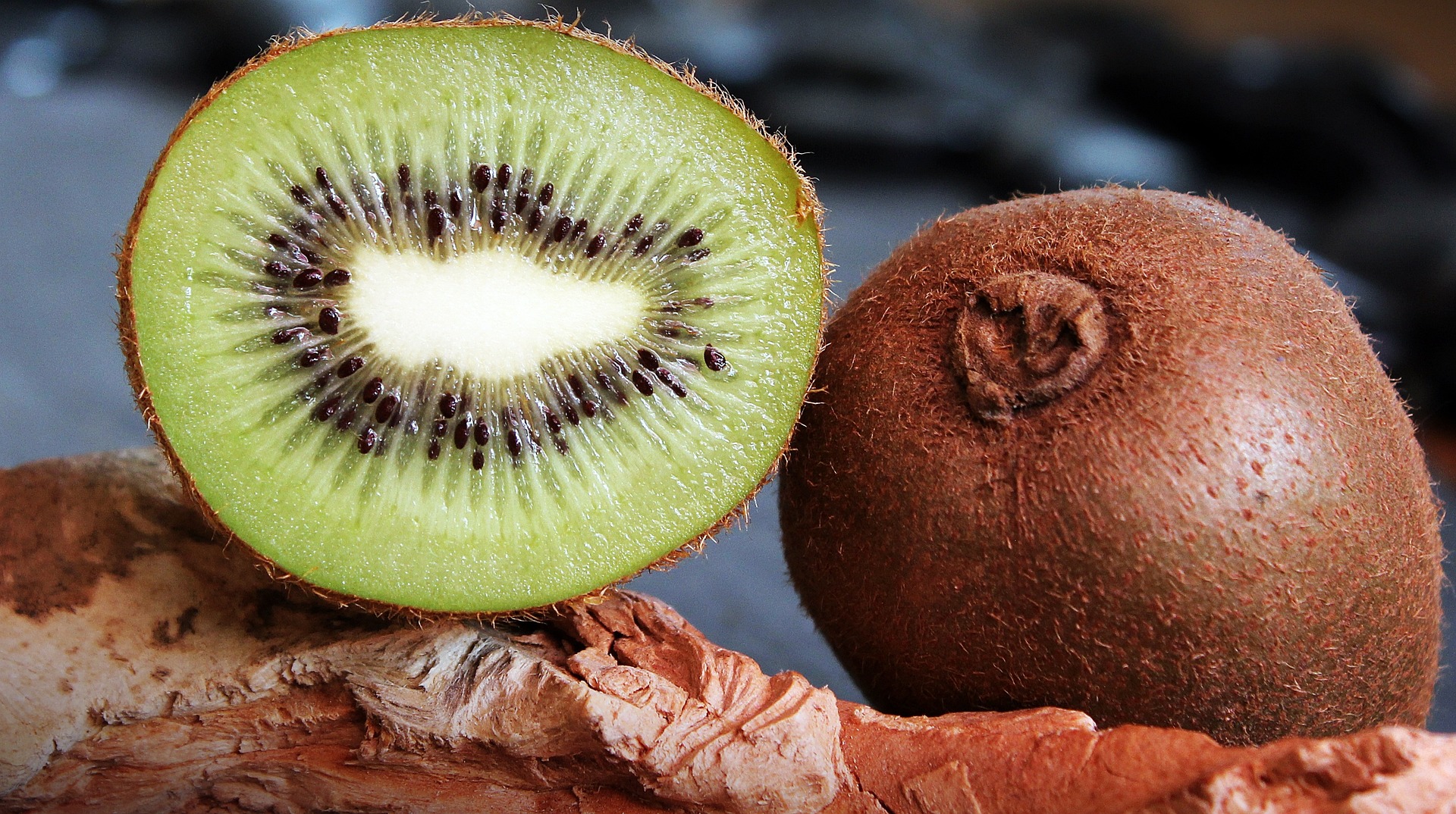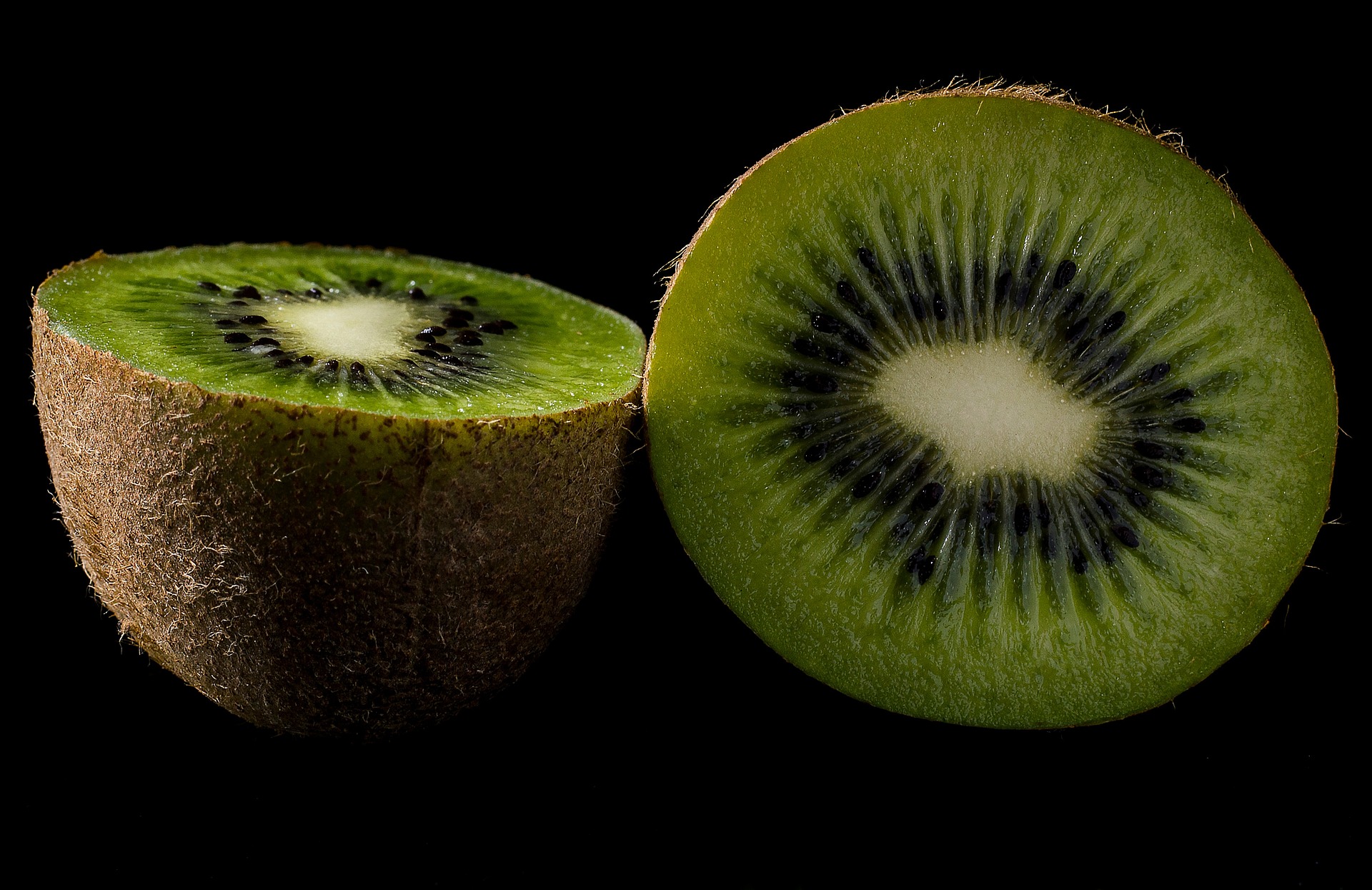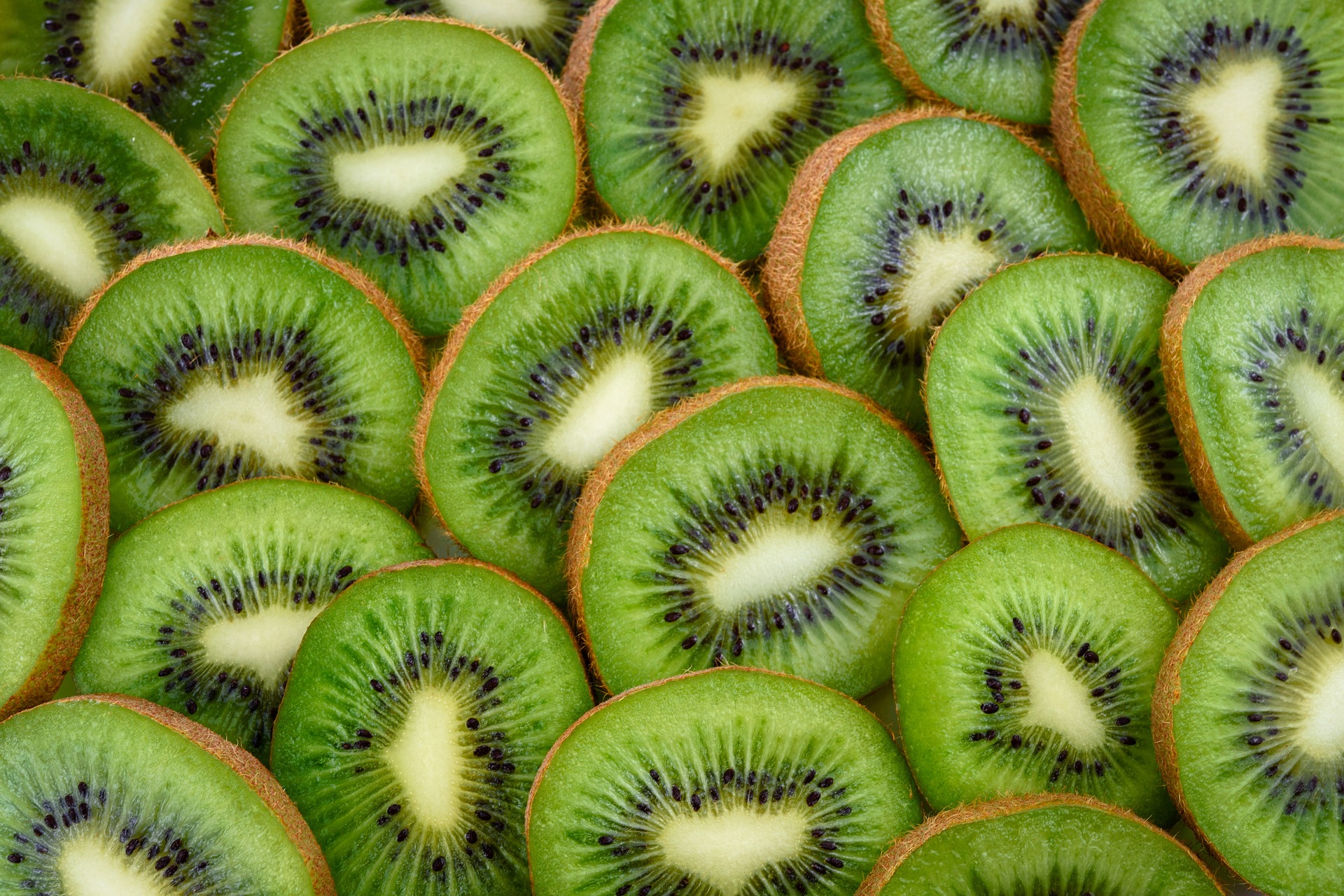Kiwi: A Vibrant and Nutrient-Packed Fruit

Kiwi, with its vibrant green flesh and unique flavor, is a delightful fruit that packs a punch when it comes to nutrition. Originally known as Chinese gooseberries, kiwis are now widely enjoyed around the world for their refreshing taste and numerous health benefits. In this article, we will explore the nutritional value of kiwi, its potential health benefits, and creative ways to incorporate this fruit into your diet. Let’s delve into the world of kiwi and discover why it’s worth adding to your daily menu!
Introduction to Kiwi: A Vibrant and Nutrient-Packed Fruit
Kiwi, scientifically known as Actinidia deliciosa, is a small fruit native to China but is now cultivated in various countries. It features a fuzzy brown exterior and vibrant green flesh speckled with tiny black seeds. Kiwi is prized not only for its sweet and tangy flavor but also for its impressive nutritional profile.
Nutritional Composition of Kiwi: A Vibrant and Nutrient-Packed Fruit
Kiwi is a nutritional powerhouse, packed with essential vitamins, minerals, and fiber. A medium-sized kiwi (approximately 69 grams) contains:
– Calories: 42
– Carbohydrates: 10 grams
– Fiber: 2 grams
– Protein: 1 gram
– Vitamin C: 64% of the Recommended Daily Intake (RDI)
– Vitamin K: 38% of the RDI
– Vitamin E: 6% of the RDI
– Potassium: 9% of the RDI
– Folate: 6% of the RDI
Health Benefits of Kiwi
High in Vitamin C
Kiwi is renowned for its exceptionally high vitamin C content. Vitamin C is an essential nutrient that supports immune function, helps in collagen production, and acts as a potent antioxidant. Consuming kiwi regularly can contribute to a healthy immune system, protect against oxidative stress, and promote skin health.
Fiber-Rich Fruit
Kiwi is an excellent source of dietary fiber, which plays a crucial role in maintaining a healthy digestive system. Fiber aids in regular bowel movements, prevents constipation, and supports the growth of beneficial gut bacteria. Including kiwi in your diet can help promote digestive health and contribute to a balanced gut microbiome.
Antioxidant Powerhouse
Kiwi is loaded with antioxidants, including vitamin C, vitamin E, and various phytochemicals. These antioxidants help neutralize harmful free radicals, protect cells from oxidative damage, and reduce the risk of chronic diseases such as heart disease and certain types of cancer. The unique combination of antioxidants in kiwi contributes to its overall antioxidant power, making it a valuable addition to an antioxidant-rich diet.
Digestive Health Support
The natural enzymes found in kiwi, such as actinidin, aid in the digestion of proteins. These enzymes can help break down food more efficiently, promoting better digestion and nutrient absorption. Incorporating kiwi into your meals or enjoying it as a pre-meal snack may support optimal digestion and alleviate digestive discomfort.
Immune System Boost
Due to its high vitamin C content, kiwi plays a vital role in supporting immune system function. Vitamin C enhances the production of white blood cells, which are essential for fighting off infections and illnesses. Consuming kiwi regularly can help strengthen your immune defenses and reduce the risk of common colds and other respiratory infections.
Ways to Enjoy Kiwi
Kiwi can be enjoyed in various delicious and creative ways, both on its own and as an ingredient in a wide range of dishes. Here are some popular ways to enjoy kiwi:
Fresh and Juicy
Simply slice a ripe kiwi in half and scoop out the flesh with a spoon for a quick and refreshing snack. The natural sweetness and tanginess of kiwi make it a satisfying treat on its own.
Kiwi Smoothies and Parfaits
Blend kiwi with your favorite fruits, such as bananas, berries, or pineapple, along with some yogurt or plant-based milk for a nutritious and flavorful smoothie. Layer sliced kiwi with yogurt and granola in a glass to create a delicious and visually appealing kiwi parfait.
Kiwi Salads and Salsas
Add sliced kiwi to your salads for a burst of flavor and color. Kiwi pairs well with leafy greens, citrus fruits, and nuts. You can also create a tangy kiwi salsa by combining diced kiwi, tomatoes, onions, jalapenos, cilantro, and lime juice. Serve it as a refreshing topping for grilled fish or as a dip with tortilla chips.
Kiwi Desserts and Baked Goods
Kiwi can be a delightful addition to desserts and baked goods. Top a fruit tart or cheesecake with sliced kiwi for an attractive and tangy twist. Incorporate diced kiwi into muffins, quick breads, or cakes for a unique and flavorful treat.
Kiwi as a Garnish or Decorative Element
Slice kiwi into thin rounds or wedges and use them as a garnish for cocktails, fruit salads, or desserts. The vibrant green color of kiwi adds a visual appeal to any dish and elevates its presentation.
Incorporating Kiwi Into Your Diet
Recipes
Here are a few recipe ideas to help you incorporate kiwi into your diet:
– Kiwi and Spinach Salad: Combine sliced kiwi, fresh spinach, strawberries, goat cheese, and walnuts. Drizzle with a honey-lime dressing for a nutritious and flavorful salad.
– Kiwi and Avocado Salsa: Dice kiwi, avocado, red onion, jalapeno, and cilantro. Squeeze in some lime juice and season with salt and pepper for a vibrant and tangy salsa.
– Kiwi Chia Pudding: Mix chia seeds with almond milk and a touch of sweetener. Let it sit overnight in the refrigerator, then layer with sliced kiwi and granola for a delicious and satisfying breakfast or snack.
Meal Ideas
Here are a few meal ideas that incorporate kiwi:
– Breakfast: Start your day with a refreshing kiwi and banana smoothie bowl. Blend frozen banana, kiwi, spinach, and almond milk until smooth. Top with your favorite toppings such as granola, sliced kiwi, and coconut flakes.
– Lunch: Prepare a vibrant and nutritious kiwi, chicken, and quinoa salad. Combine cooked quinoa, grilled chicken breast, diced kiwi, cucumber, cherry tomatoes, and feta cheese. Toss with a lemon-herb dressing for a satisfying and wholesome lunch.
– Snack: Enjoy a light and flavorful kiwi salsa with baked tortilla chips. Combine diced kiwi, mango, red onion, cilantro, lime juice, and a pinch of salt for a refreshing and healthy snack option.
– Dinner: Create a tropical-inspired kiwi and shrimp stir-fry. Sauté shrimp with bell peppers, snap peas, and sliced kiwi in a soy-ginger sauce. Serve over brown rice or quinoa for a delicious and colorful dinner.
– Dessert: Indulge in a creamy and tangy kiwi lime pie. Make a graham cracker crust, fill it with a mixture of kiwi puree, lime juice, condensed milk, and whipped cream. Chill in the refrigerator until set, and enjoy a delightful dessert with a hint of tartness.
Conclusion
Kiwi is not only a visually appealing and delicious fruit but also a nutrient powerhouse. Its high vitamin C content, fiber-rich nature, and array of antioxidants contribute to its numerous health benefits. Whether enjoyed fresh, blended into smoothies, or incorporated into various dishes, kiwi offers a unique flavor and a burst of nutritional goodness. So embrace the versatility of kiwi and make it a part of your daily menu to reap its many rewards.
FAQs
Q1: Can I eat the kiwi skin?
Yes, the skin of kiwi is edible and contains additional fiber. However, some people prefer to peel the kiwi due to its fuzzy texture. Make sure to wash the kiwi thoroughly before eating or consuming the skin.
Q2: Can kiwi cause allergies?
While allergies to kiwi are relatively rare, some individuals may experience allergic reactions to kiwi due to its proteins or enzymes. If you have a known allergy to kiwi or experience symptoms such as itching, swelling, or difficulty breathing after consuming kiwi, it’s best to avoid it and consult with a healthcare professional.
Q3: Can kiwi help with digestion?
Yes, kiwi contains natural enzymes, such as actinidin, that aid in the digestion of proteins. These enzymes can promote more efficient digestion and contribute to better nutrient absorption.
Q4: Can kiwi be frozen?
Yes, kiwi can be frozen. Peel and slice the kiwi before freezing it in an airtight container or freezer bag. Frozen kiwi can be used in smoothies or enjoyed as a refreshing snack.
Q5: How do I know if a kiwi is ripe?
A ripe kiwi should yield to gentle pressure when squeezed. It should also have a sweet aroma and slightly soft texture. Avoid kiwis that are overly soft, mushy, or have wrinkled skin as they may be overripe.






